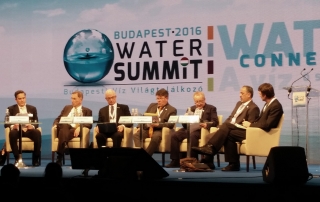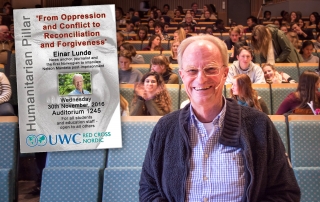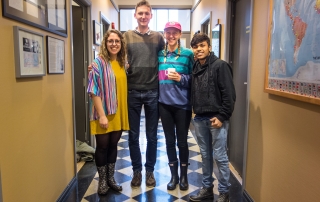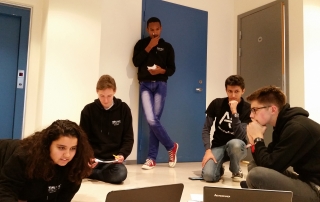The World Water Summit
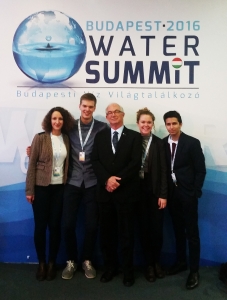 Four students from four countries, from three schools around Sogn og Fjordane, participated in the year’s biggest event on water issues. The delegation was led by Judit Dudas , the sustainability leader of UWC RCN. Marta Pinzan (Italy, UWC RCN), Sara Overgard (Denmark, Sogn Jord-og Hagebruksskule), Yash Ramchandani (United Arab Emirates, UWC RCN) and Eirik Hovstad (Norway, Firda Vidergående Skule) here summarize their experiences at the event:
Four students from four countries, from three schools around Sogn og Fjordane, participated in the year’s biggest event on water issues. The delegation was led by Judit Dudas , the sustainability leader of UWC RCN. Marta Pinzan (Italy, UWC RCN), Sara Overgard (Denmark, Sogn Jord-og Hagebruksskule), Yash Ramchandani (United Arab Emirates, UWC RCN) and Eirik Hovstad (Norway, Firda Vidergående Skule) here summarize their experiences at the event:
The Budapest Water Summit is an international congress held every 3 years to discuss development in the realm of global water issues – with environmental, socio-economic and political perspectives. This year’s summit took place November 28th- 30th and was attended by around 1400 participants from 110 countries and a variety of sectors including politics, businesses and NGOs. The summit was divided into several forums (youth, civil, science and technology etc) and was intended to serve as a strategic platform to link to the various attempts to meet the UN’s 2030 agenda for sustainable development. The Summit ended with a call to adopt the newly-formed Budapest Statement 2016 which lays down key solutions that could be implemented by firms, governments, and citizens to attain international water security.
Although our delegation was part of the youth forum, we were allowed to attend the others as well. This gave us a holistic view of the current problems the world faces whether it be sanitation or deforestation. Some specific issues that stood out for us were: The large gap between politicians and scientists, the flaws with the public-private-profit sharing model, and the lack of funding opportunities in water-related projects. Various solutions to these problems were proposed and intensely debated. The solutions ranged from simple things like making appeals to companies to follow policies or making scientific reports more accessible, to more radical ideas such as changing the global monetary system from private money to a public money system as still persisted in many places in the world in the 19th century. Over the course of these days, we also got the opportunity to meet several UN delegates, social enterpreneurs and university researchers. In reality, the Summit was more of a networking location to connect policy makers to entrepreneurial initiatives than a congress to find new solutions. It was extremely encouraging to see that the youth opinion was recognized and valued even at such high levels. It made us really happy to know that despite the difficulties that the world faces today, there is a strong and large community willing to fight for what’s right and bring change where necessary.
We were proud of being able to contribute to the messages of the Summit and hope that this will raise the awareness on water issues of not just political leaders, NGOs, scientist but the youth of Sogn og Fjordane.

